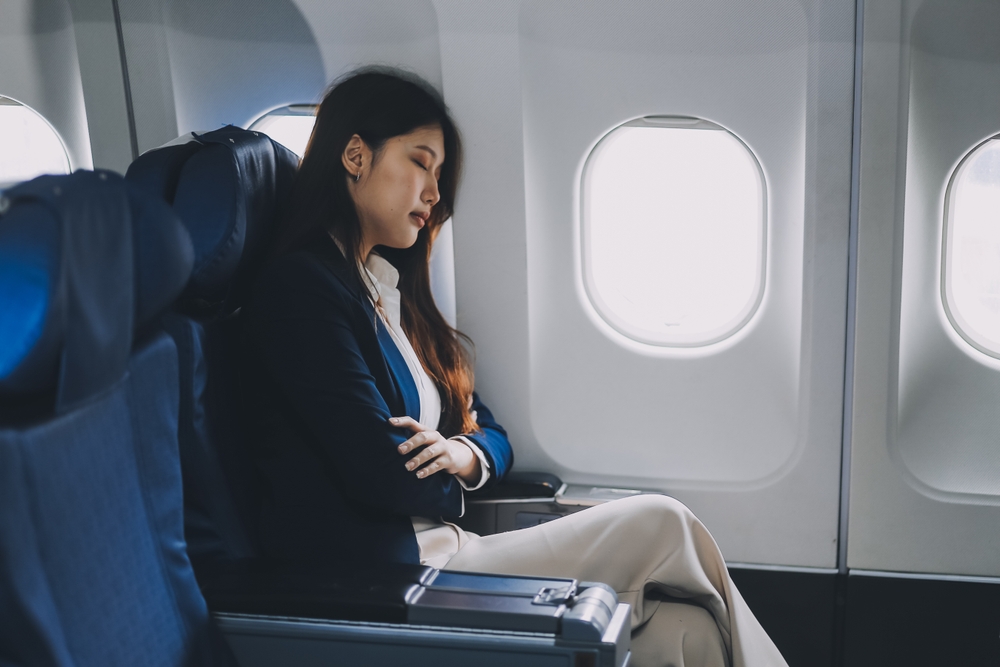For frequent flyers suffering from tinnitus, airplane travel can be particularly challenging. This common condition, affecting a significant portion of the population, can become more pronounced with the unique pressures and noise associated with flying. By understanding how air travel impacts tinnitus, you can take proactive steps to manage your symptoms and make your journey more comfortable.
What causes tinnitus?
Tinnitus, which affects approximately 15 to 37 percent of people, is characterized by persistent sounds such as ringing, humming, or static in the ears. The causes of tinnitus are varied and may include:
- Ear Trauma: Physical injury to the ear can trigger tinnitus.
- Tumors: Certain types of tumors can affect hearing.
- Infections: Ear infections can lead to tinnitus.
- Medications: Some drugs have side effects that include tinnitus.
This condition can be subjective, where only the affected person hears the sound, or objective, where a medical professional can detect the noise using specialized instruments. Regardless, dealing with tinnitus can be particularly challenging during air travel, where the added pressures and noises can exacerbate symptoms.
The challenge of airplane ear
“Airplane ear” refers to the discomfort and fullness in the ears caused by changes in air pressure during a flight. This condition is most commonly experienced during the ascent and descent of the plane when rapid altitude changes occur. The discomfort can range from mild to severe and may include muffled hearing. While Airplane Ear is usually temporary, persistent symptoms should be evaluated by a healthcare professional.
How flying can worsen tinnitus
Factors related to air travel can intensify tinnitus symptoms, including:
- Noise Exposure: The loud noises of jet engines can aggravate tinnitus, particularly if your condition is sensitive to high-frequency or mid-frequency sounds. While some individuals may not notice a significant impact, others may find the noise to be distressing.
- Altitude Changes: The rapid changes in altitude during takeoff and landing can cause issues for tinnitus sufferers. The eustachian tube, responsible for equalizing pressure in the middle ear, can become blocked or function poorly, creating a vacuum effect that stretches the eardrum. This can amplify tinnitus symptoms and cause additional discomfort.
Strategies to manage tinnitus during flights
To help mitigate the impact of air travel on your tinnitus, consider the following strategies:
- Use Sound-Canceling Headphones: While you don’t need to wear them throughout the flight, using sound-canceling headphones or earmuffs during the loudest moments, such as takeoff, can reduce noise exposure and alleviate discomfort.
- Avoid Earplugs: Although earplugs might seem like a good idea, they can sometimes worsen tinnitus symptoms by increasing pressure on the ears.
- Request a Front Seat: If possible, request a seat away from the jet engines, typically located at the front of the plane. This can help minimize noise exposure and may also facilitate a quicker exit upon arrival.
- Practice Eustachian Tube Exercises: Yawning, swallowing, or chewing gum can help open the eustachian tubes, making it easier for them to equalize pressure. These activities are particularly beneficial during ascent and descent.
- Avoid Flying When Congested: Congestion can block the eustachian tubes, making air travel more uncomfortable. If you must fly, use a decongestant to alleviate these symptoms beforehand.
- Stay Awake During Critical Phases: Staying awake during takeoff and landing allows your eustachian tubes to function more effectively, reducing the risk of discomfort.
- Distract Yourself: Engage with in-flight entertainment, music, or reading to take your mind off the tinnitus. Engaging in conversation can also be a helpful distraction, though it may not always be practical on red-eye flights.
Additional tips for a comfortable flight
Before your flight, take steps to relax and reduce stress. Activities such as getting a good night’s sleep, practicing yoga, or deep breathing exercises can help lower your blood pressure and reduce symptoms. Additionally, consider wearing your hearing aid during takeoff and landing. Although it may initially seem louder, it provides a fuller range of sound and may help mitigate tinnitus symptoms.
If you’re struggling to manage your tinnitus, it may be beneficial to consult with an expert. Scheduling a visit with a specialist near you can provide personalized strategies and treatment options tailored to your needs.



